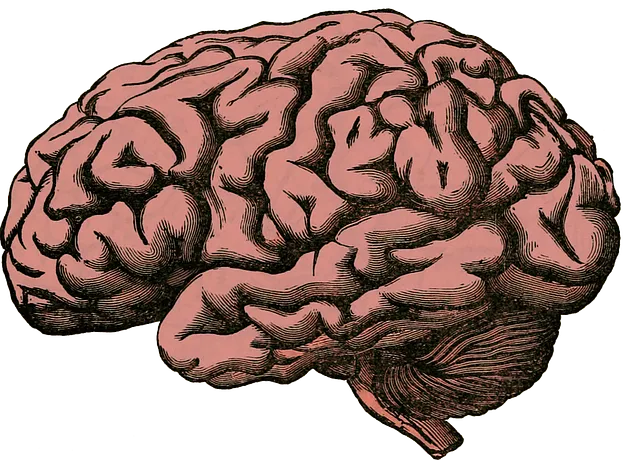Kaiser Permanente's Crisis Intervention Teams (CITs) at Westminster provide vital, specialized training for mental health support. Through stress management, wellness coaching, and social skills, CIT members de-escalate crises, ensure patient safety, and promote recovery. This holistic approach improves patient outcomes, enhances community mental health care, and serves as a model program for effective crisis management.
Crisis intervention teams (CITs) play a vital role in mental health care, providing immediate support during crises. This article explores the importance of CIT training programs, using Kaiser Permanente’s approach as a case study in Westminster. We’ll delve into key components, benefits, and challenges, highlighting the impact on clinical practice and community support. By understanding the necessary role of CITs, we can enhance mental health services, ensuring folks receive the help they need.
- Understanding Crisis Intervention Teams: A Necessary Role in Mental Health Care
- Kaiser Permanente's Approach to Training: Westminster as a Case Study
- Key Components of Effective Crisis Intervention Team Training Programs
- Benefits and Challenges: Impacts on Clinical Practice and Community Support
Understanding Crisis Intervention Teams: A Necessary Role in Mental Health Care

Crisis Intervention Teams (CITs) play a pivotal role in mental health care, especially within healthcare organizations like Kaiser Permanente Westminster. These teams are designed to provide immediate and effective support to individuals experiencing a mental health crisis. The primary goal is to de-escalate situations, ensure safety, and offer evidence-based interventions to promote recovery. CIT members are typically composed of healthcare professionals from various disciplines, including psychiatry, psychology, social work, and nursing, who receive specialized training in crisis management.
The necessity of such teams cannot be overstated, particularly given the rising demand for mental health services. Training programs focus on a multi-faceted approach to crisis intervention, encompassing stress management techniques, mental wellness coaching, and the development of essential social skills. By equipping team members with these tools, Kaiser Permanente Westminster ensures that its CITs are well-prepared to handle diverse crises, ultimately contributing to improved patient outcomes and enhanced mental health support within the community.
Kaiser Permanente's Approach to Training: Westminster as a Case Study

Kaiser Permanente, a leading healthcare organization, has been at the forefront of implementing innovative crisis intervention team (CIT) training programs, with a notable success story coming out of its Westminster facility. The organization recognizes the critical importance of equipping employees with the skills to handle mental health crises effectively. Their approach emphasizes a holistic training strategy that goes beyond traditional emergency response protocols.
The Westminster location has become a model for effective CIT training by integrating Mental Wellness and Emotional Intelligence workshops into their curriculum. These sessions focus on stress management, active listening, and empathy-building techniques, ensuring that team members are not just prepared to respond but also equipped to provide compassionate support. By fostering an environment of emotional literacy, Kaiser Permanente’s program prepares employees to de-escalate situations, build trust with individuals in crisis, and connect them with appropriate resources, ultimately improving patient outcomes and employee satisfaction.
Key Components of Effective Crisis Intervention Team Training Programs

Effective crisis intervention team training programs are multifaceted, encompassing a range of essential components to equip teams with the skills needed to handle critical situations. One key element is stress reduction methods. These techniques, tailored by organizations like Kaiser Permanente mental health Westminster, teach participants to manage their own stress levels during high-pressure interventions, ensuring they remain calm and focused. By understanding and practicing mindfulness, relaxation strategies, and cognitive reframing, team members can better support individuals in crisis.
Additionally, communication strategies are central to successful crisis intervention. Training should focus on active listening, empathy, and nonverbal cues to build rapport with individuals in distress. Effective communication facilitates a safe and supportive environment, allowing for open dialogue and the sharing of concerns. Integrating stress management practices into the curriculum further empowers team members to handle their own emotional responses while providing consistent care. These comprehensive programs prepare crisis intervention teams to navigate challenging scenarios with compassion, efficacy, and resilience.
Benefits and Challenges: Impacts on Clinical Practice and Community Support

Crisis intervention team training programs play a pivotal role in enhancing clinical practice and fostering community support, especially in organizations like Kaiser Permanente mental health Westminster. These programs equip healthcare providers with essential tools to address acute psychological crises effectively. The benefits are multifaceted: improved patient outcomes due to swift interventions, reduced strain on emergency departments, and enhanced provider resilience. By integrating burnout prevention strategies for healthcare providers, such as resilience-building techniques, these programs mitigate the risk of professional exhaustion, ensuring long-term viability in a demanding field.
However, challenges exist. Balancing intensive training with daily clinical responsibilities can be daunting, potentially leading to temporary disruptions in service delivery. Moreover, community support systems may face strain as increased demand for crisis interventions requires broader networks and resources. Despite these hurdles, the impacts on clinical practice and community support are profound. Effective crisis intervention team training not only facilitates emotional healing processes but also cultivates a culture of mental well-being within healthcare settings, ultimately strengthening the overall healthcare ecosystem.
Crisis intervention team (CIT) training programs, such as those implemented by Kaiser Permanente in Westminster, play a vital role in enhancing mental health care. By equipping professionals with the necessary skills, these programs foster effective navigation through crisis situations, benefiting both clinical practice and community support. The case study of Kaiser Permanente’s approach underscores the significance of comprehensive CIT training in improving patient outcomes and fostering resilient communities. Key components, including interprofessional collaboration and evidence-based practices, ensure that teams are prepared to handle diverse crises with compassion and competence. While challenges exist, the benefits of CIT training are indelible, making it a crucial investment for organizations like Kaiser Permanente in the mental health landscape.






